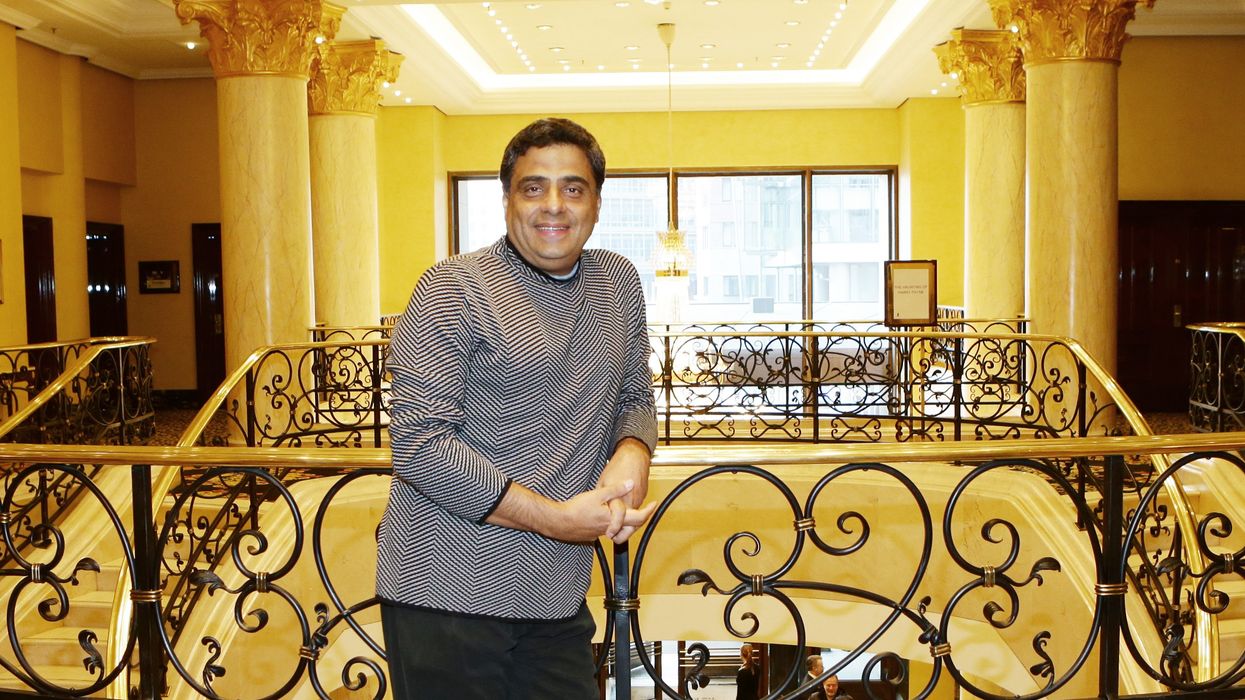The 2025 edition of the Forbes Billionaire List was released on Wednesday morning, showcasing the world's wealthiest individuals. The list features 3,028 billionaires globally, including 205 from India. Among these is Bollywood's only billionaire, Ronnie Screwvala, a media mogul whose journey from manufacturing toothbrushes to becoming a leading entrepreneur is nothing short of remarkable. With a net worth of $1.5 billion, Screwvala has surpassed the combined fortunes of Bollywood’s biggest stars, including Shah Rukh Khan, Salman Khan, and Aamir Khan.
Bollywood’s wealthiest man
Ronnie Screwvala stands as the richest person from the Hindi film industry, with a fortune exceeding that of its biggest icons. According to Forbes, his net worth of $1.5 billion surpasses the combined wealth of Shah Rukh Khan ($770 million), Salman Khan ($390 million), and Aamir Khan ($220 million), whose total stands at $1.38 billion. Additionally, he eclipses other notable figures such as Gulshan Kumar (approximately $900 million) and Aditya Chopra ($800 million). His financial success is a testament to his entrepreneurial acumen and strategic investments in both entertainment and education sectors.
Early life and entrepreneurial beginnings
Born in Bombay in 1956, Ronnie Screwvala’s journey to wealth began in an unexpected industry, manufacturing toothbrushes. In the late 1970s, he started his entrepreneurial career in the consumer goods sector. However, his true breakthrough came in the 1980s with the arrival of colour television in India. Recognising the potential in cable TV, he pioneered its expansion in Indian metropolitan areas, setting the stage for his entry into the entertainment industry.
Establishing UTV and a media empire
In 1990, Screwvala founded UTV, a company that revolutionised film and television production in India. Over the next two decades, UTV Motion Pictures became synonymous with quality cinema, producing iconic films such as Swades, Rang De Basanti, Khosla Ka Ghosla, Jodhaa Akbar, Fashion, Delhi Belly, and Barfi!. His influence extended to television as well, with UTV creating beloved TV shows like Shanti, Hip Hip Hurray, Shaka Laka Boom Boom, Khichdi, and Shararat.
In 2012, Screwvala made a landmark business move by selling UTV to Disney in a billion-dollar deal, marking his exit from the company. However, his passion for storytelling drew him back to the industry, leading to the establishment of RSVP Movies in 2017. Under this banner, he produced critically and commercially successful films like Kedarnath, Uri: The Surgical Strike, The Sky Is Pink, and Sam Bahadur.
Diversifying into education and sports
While Screwvala’s influence in Bollywood remains strong, his financial empire extends far beyond the film industry. He has invested in several startups and founded successful ventures, notably UpGrad, Unilazer, and USports.
UpGrad, his most significant non-entertainment venture, is an edtech company that has transformed online education in India. The platform offers courses in collaboration with leading universities, catering to professionals looking to upskill. Unilazer, his private equity firm, has funded numerous startups across various industries, while USports has played a role in the country’s growing sports ecosystem.
A return to the limelight
Despite his behind-the-scenes presence in the entertainment industry, Screwvala stepped into the public eye in 2024 when he made his screen debut as one of the investors on Shark Tank India. His participation in the show further cemented his reputation as a successful entrepreneur willing to mentor emerging business minds.
The legacy of Ronnie Screwvala
Ronnie Screwvala’s rise to billionaire status is an inspiring story of vision, resilience, and strategic investments. From manufacturing toothbrushes to pioneering cable TV, from building a film production powerhouse to transforming online education, his impact spans multiple industries.
As Bollywood’s richest man, he has redefined success in the entertainment business, proving that wealth in the industry is no longer confined to acting superstars. With continued investments in technology, education, and media, Screwvala’s influence is set to grow, further solidifying his status as one of India’s most successful entrepreneurs.





